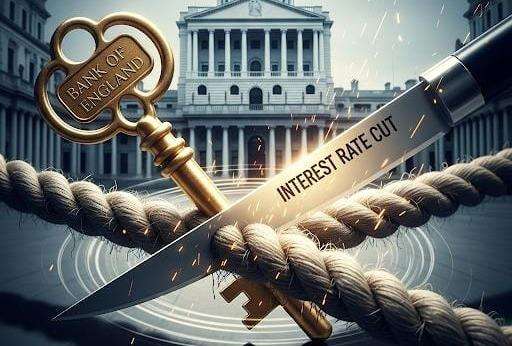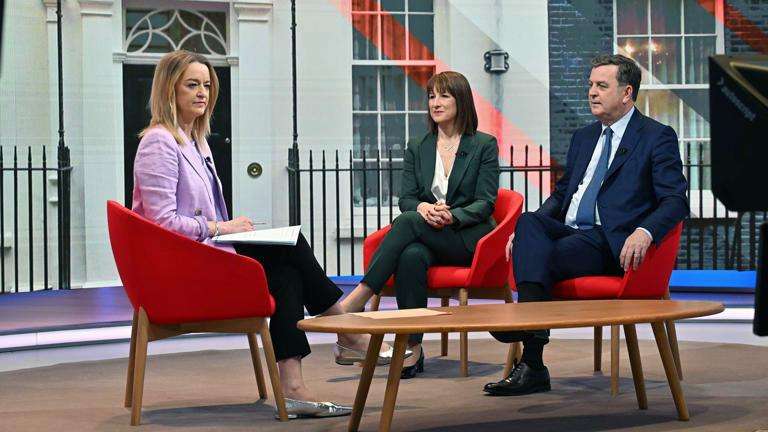Rachel Reeves is facing strong opposition from unions over plans to cut Civil Service running costs by 15%, with claims that up to 50,000 public sector jobs could be lost.
The Chancellor stated that Labour aims to reduce the Civil Service workforce, which expanded during the Covid-19 pandemic, by cutting “back office functions, administrative, and bureaucratic roles” by the end of this parliamentary term.
She rejected comparisons to Conservative-led austerity, emphasizing increased investment in capital projects and the NHS.
However, Fran Heathcote, general secretary of the Public and Commercial Services (PCS) union, warned that any reductions would negatively impact frontline services already strained by years of underfunding.
“The effect of these cuts won’t just harm our members, but also the public who depend on these services,” she said. “We’ve seen this before under Gordon Brown, and the result was chaos.”
Speaking to Sky News, Reeves expressed confidence that 10,000 jobs could be eliminated. However, union leaders warn the actual figure could be significantly higher.
Dave Penman, general secretary of the FDA union, told ITV News: “We’re looking at cuts amounting to nearly 10% of the Civil Service salary bill over the next few years. With a workforce of around half a million, that could mean as many as 50,000 jobs lost.”
This dispute follows growing criticism—both from unions and some within the Labour Party—over welfare spending cuts and reductions to the aid budget to finance increased defense spending, ahead of the Chancellor’s Spring Statement on Wednesday.
On BBC’s Sunday with Laura Kuenssberg, Reeves was questioned about concerns that Labour is implementing its own version of austerity.
She responded: “Last year, I committed £100 billion more to capital spending than the previous government, and over £20 billion into the NHS. That is very different from what we’ve seen under Conservative rule over the last 14 years.”
Reeves also confirmed that funding for unprotected departments, including the Ministry of Justice, will be outlined in the spending review set for June.
“We’ll set all that out when we do the spending review, but we can’t just carry on like we have been spending on the same things that the previous government spent on.
“People want to know we’re getting value for money, when people are paying more in tax that they’re getting more in return.”
She also said that anyone who runs a business will agree that plans to cut Civil Service costs will be “more than possible” given advances in technology and AI.
The Cabinet Office will tell departments to cut their administrative budgets by 15%, which is expected to save £2.2 billion a year by 2029-30.
“We are, by the end of this Parliament, making a commitment that we will cut the costs of running government by 15%,” Ms Reeves said.
Ms Reeves said the size of government “increased massively” during the pandemic.
“But the size of the Civil Service hasn’t come back during that period. So, we now need to make sure that we do realise those efficiency savings so we can invest in the priorities.”
She said the cuts would come from “the back office functions, the administrative and bureaucracy functions”.
Union bosses have argued there is no simple distinction between the “back office” and the “front line”.
Mike Clancy, general secretary of Prospect, said: “The Chancellor has talked about undertaking a zero-based review of spending, this must include a realistic assessment of what the Civil Service doesn’t do in future as a result of these cuts.
“Public servants in ‘back office’ and ‘frontline’ role will both be critical to delivering on the Government’s missions and the Government must recognise that many civil servants are working in ‘frontline’ roles.”
Looking ahead to the spring statement, Ms Reeves said she would not pre-empt the Office for Budget Responsibility’s forecast she will be responding to.
“But the world has changed,” the Chancellor told Sky News’ Sunday Morning with Trevor Phillips.
“We can all see these changes happening, and governments are not standing idly by—we will respond while continuing to uphold our fiscal rules,” the Chancellor stated.
Rachel Reeves has consistently reaffirmed her commitment to strict fiscal policies, which prohibit borrowing for day-to-day spending.
This stance has intensified pressure on how the government will balance its finances—either through tax increases or spending cuts—especially as economic growth remains sluggish and borrowing exceeds expectations.
In an interview with The Sun, Reeves confirmed that there would be no tax hikes in the upcoming Spring Statement.
The Bank of England has downgraded its economic growth forecasts for the year, and on Friday, Reeves faced another setback as government borrowing for February reached £10.7 billion—£4.2 billion higher than the Office for Budget Responsibility (OBR) had predicted.
A welfare cuts impact assessment will be published alongside the Chancellor’s statement.
Experts estimate that around one million people in England and Wales could lose their disability benefits under a welfare reform plan that the government expects will save over £5 billion annually by the end of the decade.
Rachel Reeves told the BBC that the benefits bill is “through the roof” and that too many people are “locked out of work.”
“I want to change that by providing proper support to help more people access the dignity and pride that comes with employment,” she said.
Shadow Chancellor Mel Stride argued that the Conservatives would have taken welfare reforms even further, proposing a “fundamental overhaul” of Personal Independence Payments (PIP) to make them more targeted.
Speaking to Trevor Phillips, Stride explained: “Under a reformed PIP system, if you had a mental health condition, instead of receiving financial support every year, you might instead be offered treatment to help you recover and, if unemployed, to enter the workforce.”
In a separate statement, Stride accused Labour of being “completely out of touch” with the struggles of ordinary families.
“Business confidence has collapsed, growth has stalled, companies are cutting jobs, and Labour’s borrowing spree has driven up mortgage costs for families,” he said.
“This is not restoring stability—it is causing deep economic harm, and ordinary people are bearing the brunt of the Chancellor’s poor decisions.”
_1.jpg)
_1.jpg)






.svg)



